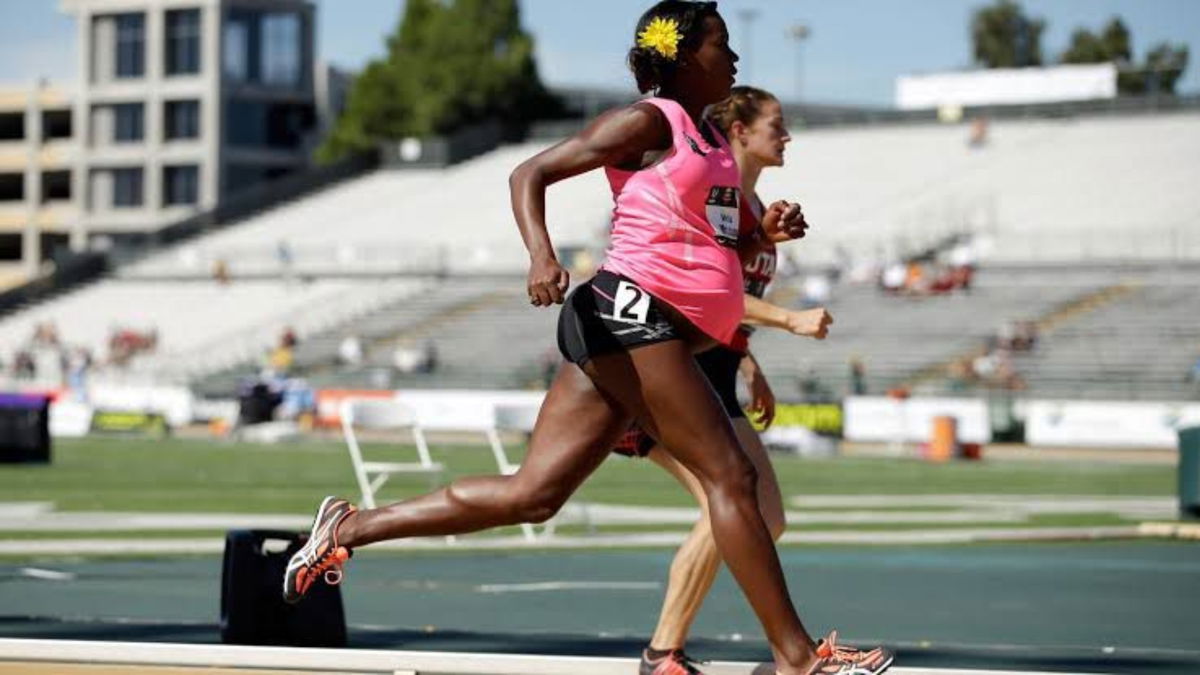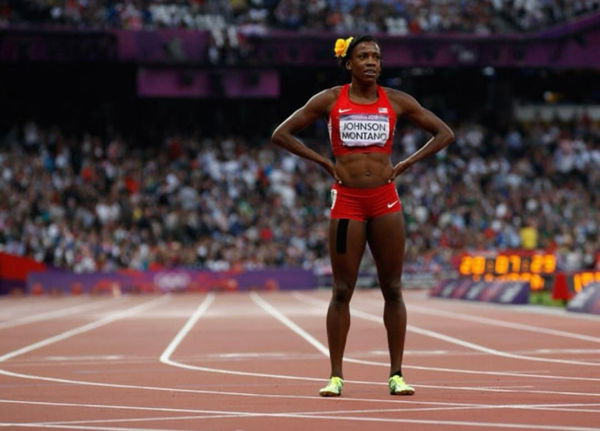
Imago
X

Imago
X
What happens when one of the world’s top athletes decides to have a baby? In most professions, it’s a celebrated life milestone. In elite track and field, it can mean losing everything from your income to your sponsors and your place on the starting line. Despite breaking records, bringing home medals, and inspiring millions, female athletes who become mothers often find themselves forced into silence or sidelined altogether. One champion 2x World Championships bronze medalist, nearly a decade after stepping away from competition, is finally telling the raw truth about what happens after the race when the cameras stop rolling, the cheering fades, and all that’s left is a mother fighting for her career.
Watch What’s Trending Now!
Well, we know Alysia Montano in 2014 stunned the world by running the 800-meter race at the USA Nationals while eight months pregnant. Her performances made headlines worldwide, but behind the celebration was a devastating reality: her contracts were quietly crumbling. Nike paused her deal when she disclosed her pregnancy. Later, ASICS cut her pay and eventually ended the partnership entirely.
“I had my pay rescinded,” Montaño revealed. “Like, the sponsor was just like, that sponsor was done. They were like, We want somebody who’s more dedicated to their craft.” She adds, “What’s more dedicated than winning after the fact and continuing to keep myself healthy during my pregnancy?” It didn’t matter that she was still performing.
What mattered was that she was now a mother, and to the brands, that made her a risk. On a recent episode of Redefined with Leslie & Arielle, she finally opened up about her journey in track and field. “If it’s not me, like, winning, who is it gonna be?” she said. “If we continue to allow ourselves to be pushed into corners and silos, it’s just about oppressing women. Not giving them an opportunity to excel from what they’re capable of.”

The aftermath of childbirth was not easy. With her second child, Montano felt stronger and sharper, but the barriers only grew. She detailed the intense juggling act: “Hiring a babysitter to be there on the track with me and then bringing my son to breastfeed and then going back and hitting—that was never, that was never seen.” This wasn’t just about training. It was about survival.
She was burning through savings, navigating postpartum challenges, and trying to hold on to a career that seemed determined to let her go. The deeper issue? A culture that still doesn’t know what to do with pregnant athletes. “Women are dismissed, undervalued, or erased altogether from opportunities that they had worked for all only because motherhood is now added to their resume,” said a now 39-year-old Montano.
The pain wasn’t in pregnancy or labor; it was in watching her passion in track and field fade, not by choice, but by systemic exclusion. She added, “If people don’t know this part of the story… the narrative would have been, ‘At least she came back and she won, woo!’ and then she decided to not come back to the sport that’s what the narrative would have been, which is not the case.”
Nine years later, Montaño’s story is still unfolding, but now, she’s writing the script. Her mission is bigger than medals. “Wanting to do right by my family, wanting to do right by myself,” she said, “if I don’t come out and share this part of the story, we’re going to have just 10 more generations of women that are going to be walking into the same wall that I walked into.”
Her voice, once silenced by contracts and expectations, is now a megaphone for truth. Now we say her name: Alysia Montano is a voice that refuses to stay silent. Through her organization, &Mother, she’s working to ensure the next generation of athlete moms, especially in track and field, won’t have to fight the same battles alone. But she is not the only one who faced it.
The real cost of motherhood in track and field
Allyson Felix, a six-time Olympic gold medalist, encountered significant hurdles during her pregnancy. In 2018, while negotiating a new contract with Nike, she requested maternity protections to ensure she wouldn’t be penalized for not performing at her peak shortly after childbirth. Nike declined, offering her a contract with a 70% pay reduction.
Felix highlighted the broader issue in track and field, stating, “If I, one of Nike’s most widely marketed athletes, couldn’t secure these protections, who could?” This led her to part ways with Nike and sign with Athleta, a brand that provided full maternity support. Distance runner Kara Goucher faced similar challenges. After giving birth in 2010, she was informed by Nike that they would cease her payments until she resumed racing.
This pressure led her to compete in a half-marathon just three months postpartum, resulting in chronic hip injuries. Reflecting on the experience, Goucher said, “Returning to competition so quickly was a bad choice for me. And looking back and knowing that I wasn’t the kind of mother that I want to be — it’s gut-wrenching.” Motherhood is a blessing, not a curse.
But in elite sports, it’s often treated like a deal-breaker. Athletes like Alysia Montaño, Allyson Felix, and Kara Goucher didn’t just battle competitors on the track and field; they had to fight their sponsors, contracts, and outdated mindsets just to keep their careers alive after becoming moms. Sure, brands like Nike eventually updated their policies (offering 18 months of protection for pregnant athletes in 2019), but that only scratched the surface.
The truth is, the system still acts like women have to choose between medals and motherhood. And honestly? That mindset needs to retire. These women are showing up, pushing boundaries, raising babies, and still winning. So maybe it’s time the industry caught up.

